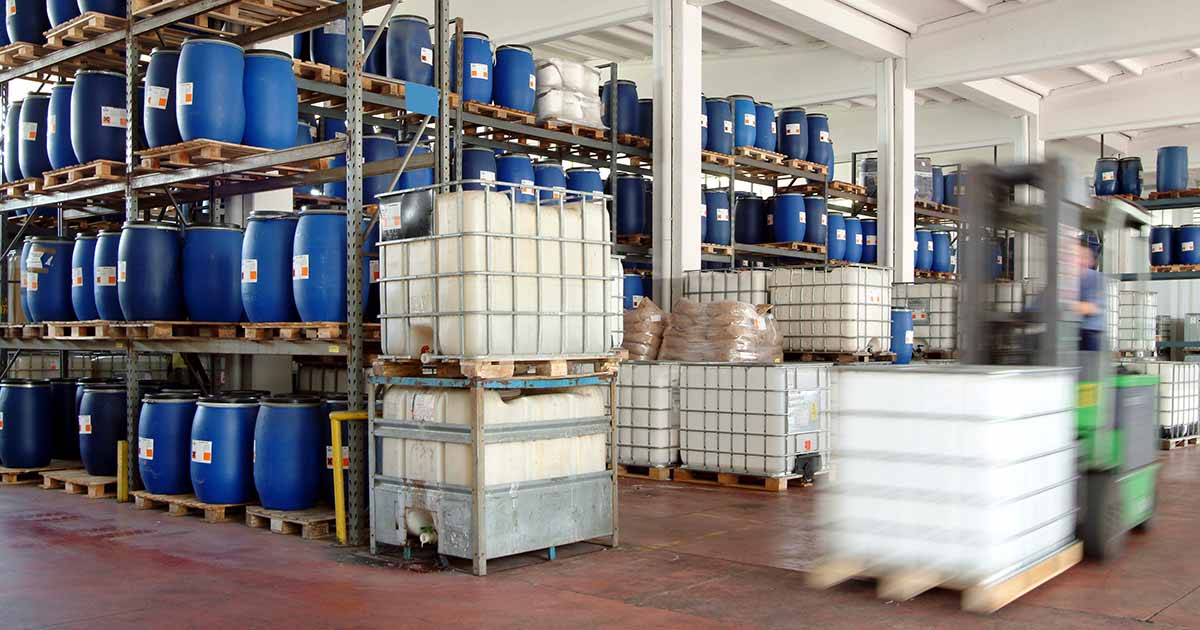The chemical manufacturing industry is constantly evolving, and businesses need to stay ahead of the technology curve to remain competitive.Relying on manual processes hold you back, leading to inefficiencies and inconsistencies across your company, including financial reporting, warehouse management, quality control, and regulatory reporting. These issues hinder growth and put businesses at risk of non-compliance with regulatory standards. This is where an industry-specific ERP solution comes in to help streamline processes and improve your company’s overall efficiency.
Financial Reporting
When you over rely on manual processes, financial reporting becomes time-consuming, prone to errors, and difficult to reconcile. These errors can lead to error-filled financial statements while hindering smart decision-making. An ERP solution with an integrated financial reporting capability can automate fragile manual processes while keeping an eye on the financial health of your business.
By adopting an ERP system, your information flows through the system and into the relevant reports, reducing the risk of errors occurring when multiple people maintain separate spreadsheets.
In addition to improving accuracy, an ERP system also saves time by automating your manual processes. For example, an ERP system can automatically generate reports such as balance sheets, income statements, and cash flow statements. This saves significant time and resources compared to manually collating information from multiple sources and then creating reports in Excel or another program.
With real-time data and reporting capabilities, you can access information about key financial metrics such as sales, costs, and profits in a timelier manner, helping you make better-informed decisions all from one centralized ERP hub.
Warehouse Management
An ERP system can greatly improve a chemical manufacturers’ overall warehouse management process. Beyond streamlining the physical movement and tracking of inventory, an ERP can also help with many other inventory management aspects.
Most ERP systems can automate inventory tracking, making it easier for manufacturers to monitor stock levels and keep track of their supply chain in real-time. Automated tracking can help reduce the risk of under- or overstocking, which can decrease cost. Ordering processes can also be automated, enabling companies to reorder products when stock levels drop, keeping your shelves stocked and ready.
Along with inventory tracking and ordering processes, the receiving process can also be automated by an ERP system. The system can automatically update inventory levels and account for any discrepancies, reducing the likelihood of manual errors and improving the accuracy of your receiving process.
ERP systems also help with cycle counting, the process of regularly counting a portion of inventory to ensure accuracy and prevent stock discrepancies. By automating this process, chemical manufacturers can save time and improve accuracy, while also gaining real-time visibility into their inventory levels.
Quality Control
As most chemical manufacturers know, maintaining consistent quality control is crucial for the health and safety of their customers. With manual processes, it can become difficult to maintain a consistent standard across the entire production process. Inconsistencies in quality can put the business at risk of non-compliance with regulatory, or in the case of contract manufacturers, their customers’ standards.
Chemical manufacturers must establish a quality control system that is designed to meet the specific needs of the company and its customers. This may include developing procedures for incoming raw material inspection, in-process testing, and final product inspection, as well as intermittent quality testing between steps to ensure maximum safety.
An ERP solution with integrated quality control features can help ensure that the production process remains consistent and meets regulatory standards. This not only improves the quality of the products produced but also helps protect the business from regulatory penalties and reputational damage.
Moreover, an ERP system provides a centralized platform for data and information, enabling manufacturers to monitor and control quality control processes in real-time. This central information hub reduces the risk of human error and ensures that all quality control procedures are followed consistently by your team. The system also enables manufacturers to automate quality control reporting, reducing the time and effort required to produce reports and providing management with accurate data to support decision-making.
Regulatory Reporting
As you know, industries working with chemicals are highly regulated. Companies must comply with a range of federal, state, and local regulations to ensure the safety of their products for consumers and the environment. Maintaining regulatory reporting can be tedious, due to the importance of providing information to government agencies on the production, use, and disposal of chemicals.
US chemical manufacturers must comply with the Toxic Substances Control Act (TSCA),requiring companies to report information about the chemicals they produce or import into the United States. This information includes vital information such as the chemical identity, production volume, use, and health and safety data. The Environmental Protection Agency (EPA) then uses this information to assess potential risks posed by the chemicals and make critical decisions about the consumer safety of these products.
Abroad, European chemical manufacturers work under the European Union’s Registration, Evaluation, Authorization, and Restriction of Chemicals (REACH) regulation. This regulation requires companies to register all the chemicals they produce or import into the EU, and to provide information on the properties and uses of all these chemicals. The European Chemicals Agency (ECHA) uses this information to assess the risks posed by chemicals and make decisions about their authorization for use.
To ensure compliance with all the many regulations, chemical manufacturers must have powerful ERP systems in place for collecting, tracking, and reporting all relevant information. This is a complex and time-consuming process, but it is critical to ensure that the public is protected from the potential hazards of chemicals.
Real-World Results from Improved Efficiency: Copps’ Journey
Copps Industries, a provider of epoxy resins, has faced several challenges in scaling its business that are all too familiar to many businesses within the industry. Outdated technology, manual processes, and the loss of key employees hurt the scalability of Copps Industries. To overcome these challenges, Copps decided to upgrade to a comprehensive ERP solution in 2008 offered by Deacom. After experiencing success with the integration, Copps upgraded in 2020 to Deacom’s Managed Cloud Services (MCS). The MCS solution provided Copps with fast access to data without the need for an outside IT team.
Since going live with Deacom in 2008, Copps has experienced significant benefits, including a 20% reduction in IT support costs, increased sales by three times, and a 500% increase in the number of SKUs offered. Deacom’s ERP solution has also been instrumental in helping Copps move to remote work during the COVID-19 pandemic. Thanks to the support offered by Deacom, moving to the cloud was seamless for Copps Industries.
Copps VP of Operations, Chris Wood said Deacom provided his company with better process control and efficiencies, allowing the company to know the status of every order. The ERP solution will continue to power Copps as it expands to a new facility and consolidates several functions under one roof
You can read the full case study for Copps Industries here.
The chemical manufacturing industry is constantly facing challenges when it comes to production, efficiency, and compliance with regulations. In this article, we were able to explore some of the key considerations that chemical manufacturers need to keep in mind, including the importance of technology for streamlining processes in warehouse management, quality control, and regulatory reporting. The Copps case study serves as a valuable example of how a chemical manufacturer can effectively address these challenges and drive positive change within their organization using an ERP system.
Chemical manufacturers who are proactive in their approaches will be best positioned to succeed in a rapidly changing industry landscape. By investing in innovative technology solutions, focusing on operational excellence, and prioritizing regulatory compliance, chemical manufacturers can ensure a bright and sustainable future for their businesses.

